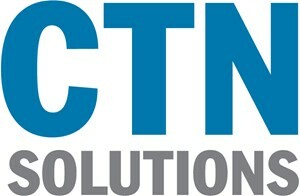- Think before you click
-
- This tip applies most importantly to emails you receive. If you see an unknown link and are unsure what it contains, do not click it. Hackers also use unsafe links within emails about recovery emails, bank statements, and more, to find your personal information.
- Use strong and varied passwords
-
- Although it is easy to reuse the same password for all your login needs, it is one of the riskiest factors for a hacker to reach you. Using different and strong passwords creates the best online security. The strongest passwords uses more than 8 characters, uses an uppercase, lowercase, number, and symbols, and make sure to change your passwords often.
- Use a password manager tool
-
- KeePass, LastPass, 1Password, Dashline, and Roboform are some of the most used password managers. Using one of these password managers helps you manage all of your passwords, because it can be hard to memorize each and every one.
- Set up two factor or multi factor authentication
-
- MFA is important for your security in that it adds extra protection to the standard method of using passwords. Using MFA will have you verify yourself through a code, fingerprint or OTP in your email or phone number. In short, you will use two different credentials to login, helping keep your data safe and secure from hackers.
- Check CERT- In updates on a regular basis
-
- Computer Emergency Readiness Team serves as the national agency to perform multiple functions in the cyber security domain. Checking in with CERT-In updates mainly benefits you with cyber emergencies.
- Keep your systems updated
-
- Keep your browsers, software, and operating systems updated. This tip is one of the most crucial for users to do in order to prevent a cyber-attack. The older your systems are, the easier it is for a hacker to succeed in getting past your firewall.
- Use firewalls and anti-viruses
-
- Firewall and anti-viruses help protect your systems and networks from a cyber attack. Antivirus software such as McAfee, TOTAL AV, Norton are great to implement. Firewalls like NGFW, NAT firewalls, and more, will also be a good idea to keep all your data protected and prevents cyber threats.
- Avoid online use of debit cards
-
- When making purchases online, avoid using a debit card. Using a payment method that is directly connected to your bank account is risky. Look to use a credit card, PayPal, etc., for online purchases to provide better protection to your financials.
- Learn about phishing attacks
-
- To avoid getting caught in a phishing scam, you should know how to identify one when it comes across your screen. During a phishing attack, hackers assume a different identity in order to trick you so that you provide them with your information or click on malicious links/files/attachments that will attack your system with viruses. Be careful about emails you open and the links you click on. Observe these items if they look unfamiliar, and if you are unsure, do not click it.
- Avoid unfamiliar websites
-
- Be cautious of new sites because some can contain viruses or drive-by download attacks. A drive- by cyberattack attacks your computer without clicking on links within the site, but only by visiting the website.
- Avoid useless downloads
-
- Safely choose what you choose to download. A common online scam by hackers come through downloading unsafe platforms, that lead them to gain access to your network and systems. Additionally, decline any pop-up ads to install extensions or add-ons, which can also be a risk to your safety.
- Stay cautious on social media
-
- Social media is a common usage in todays world. Some people might post too much personal information, publicly or privately, which can help hackers gain better information to retrieve passwords. Use social media in a smart way, limiting the amount of information you share, to lessen your changes of experiencing a breach.
- Make your data backup regularly
-
- Due to cyberattacks leading to lost information or file damage, it is important to your data has a backup. Backing up your information might not completely retain the loss, but it will make the damage less severe.
- Don’t use public WiFi without a VPN
-
- Use a Virtual Private Network (VPN) along with the usage of public WiFi. VPN secures your device from the server. Hackers can access your personal data through public WiFi, but adding a VPN helps protect your device and its information as a strong level of protection.

Source; Intellipaat
